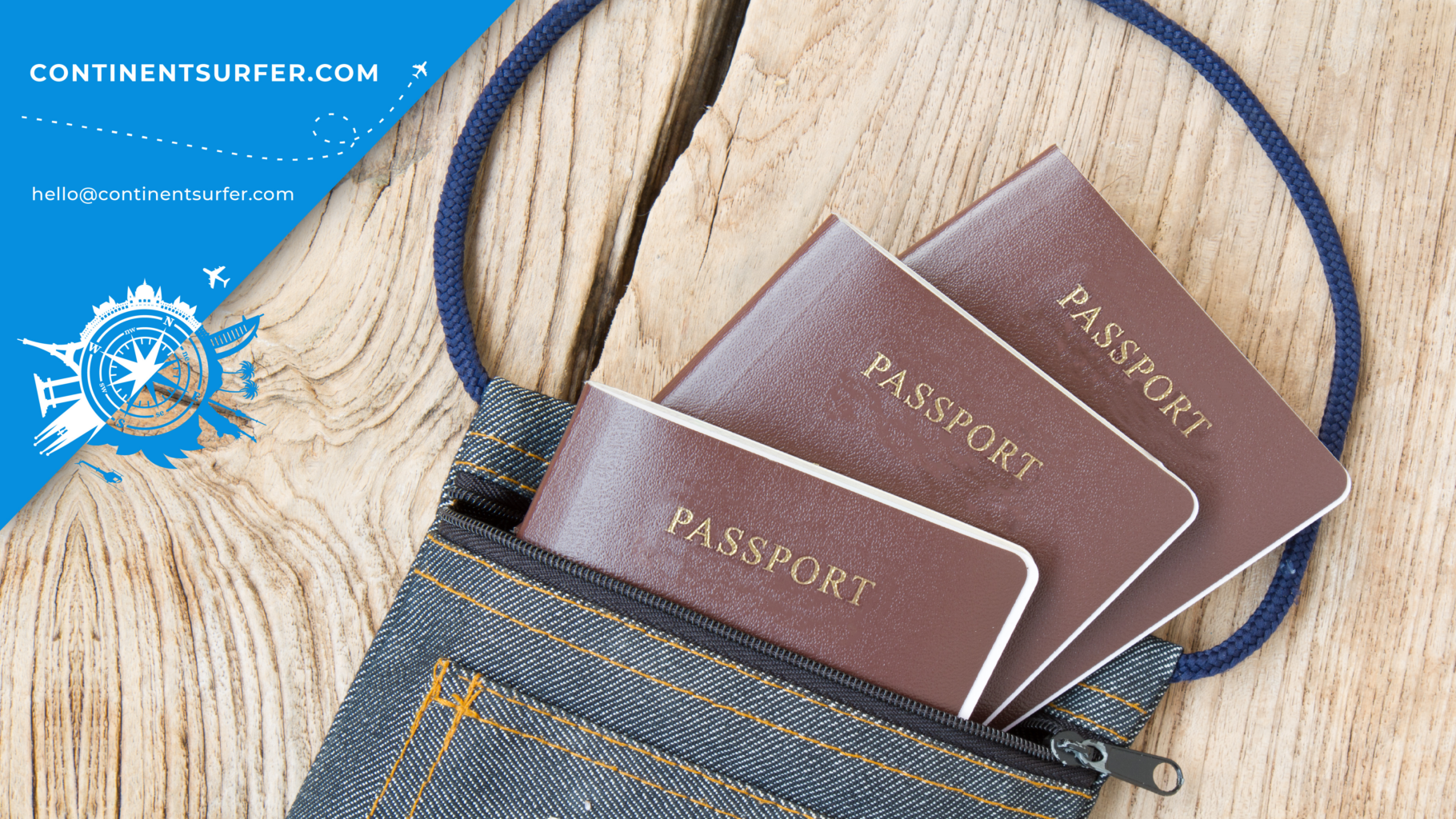Citizenship: “How many nationalities could I have?”
In general, it can be difficult to make heads or tails of citizenship issues. The vast majority of people start life with having one passport, one nationality, others can feel lucky to start off with having two.
What happens if at some point in your life you decide that you want to have another one? How long does it take to become a citizen of a different country?
Written by: Niki – CONTINENT SURFER
Once you become a citizen of another country, do you know whether you will lose your current citizenship? So many questions may arise when talkin about multiple nationalities…
As per most visitors of continentsurfer.com considering moving abroad for short- or long-term, such questions will cross their minds frequently.
You are in the right place now if you are looking for anwers to ease your concerns.
What is citizenship?
A very brief summary of its definition:
- it means being a member (citizen) of a state, which comes with obligations (e.g. paying taxes, rights to vote, etc.);
- citizenship is conferred on everyone from birth and is typically acquired in one of two ways. Either by having at least one parent who is a citizen of a certain state or by being born in the territory of that state. The latter has developed mainly in countries and states with a history of high immigration;
- citizenship can also be applied for, the methods (according to existence of familymembers, number of years spent in that country, etc.) are determined by the law of the country concerned;
- it is also possible to be deprived of citizenship (e.g. for involvement in a terrorist act) or to renounce it voluntarily;
- special status: some people, who are not citizens of a certain country can still enjoy political rights. One of the best known example is a special status of members of the Commonwealth. If citizens of these countries wish to settle in the UK, they can obtain their residence permit and visa easier. They would also be entitled to vote under certain conditions;
The question of dual citizenship

In many countries, it is acceptable for a person to be a citizen of two or more countries at the same time. But not everywhere!
Unsurprisingly, the above terms refer to being a citizen of more than one country. It also usually means that you have the same rights and obligations in each country of your citizenships held. There is no international convention that regulates the subject equally, each country has their own regulations. That is on of the reasons why you might think you are getting lost in a maze within this topic!
As mentioned above, many countries allow two or more citizenships to be held at the same time, (e.g. Australia, Germany, Canada, Hungary, etc).
Although it is not uncommon for a new nationality to automatically terminate your previous one (e.g. China). In Austria for example, once you decide to become a citizen, you must give up your previous citizenship(s).
Acquiring multiple nationalities can be done in different ways, either by marriage or taking a citizenship test. But it can also be obtained through investment schemes, which provide citizenship status in exchange for a significant amount of financial investment in a country. Austria, Malta and the Dominican Republic currently have such financial investment schemes in exchange for citizenship, and one interesting fact is that up until 2017 people had simply been able to buy their residency bonds!
So once I receive a new citizenship, would I lose the previous one?
The answer can be YES and NO. There are a greater number of countries where it is not a problem to be a happy passport holder of several nationalities at the same time. These include the USA, Canada, New Zealand and most European countries. This does not mean however, that a newly acquired citizenship cannot be lost. The US, for example, is particularly sensitive to citizens who regularly use their old passport instead of their US passport for travel. This could be interpreted as a violation of the so-called ‘Oath of Allegiance’, which could ultimately lead to the revocation of citizenship!
The aforementioned China automatically strips Chinese citizenship from anyone who becomes a citizen of another country. They consider it a criminal offence to acquire another nationality before renouncing the original one. Within the EU, Austria and Germany do not allow multiple citizenships. Austrians take a strict position on this issue. Both countries recognise dual nationality by birth, but in Austria when a child turns 18, he needs to decide which nationality he intends to keep.
In Germany, the rules are slightly more relaxed, as a Swiss or EU citizen you do not have to give up on your original nationality in exchange for German citizenship.
How long does it take to obtain a nationality?
The question of how long it takes to obtain citizenship in your chosen destination country is certainly a question on many people. Unfortunately, it is difficult to give a general answer to this question, as every country has different rules and expectations. There are a number of conditions to be met, in addition to the time factor, but here are two examples: Canada is a popular immigration destination for many people. The good news is that with permanent resident status, it is possible to take the citizenship test after just three consecutive years spent in the country. In San Marino on the other end, they do not seem to be in a hurry. Over there it is only possible to apply for citizenship after no less, than 30 years of residency! It may be giving some comfort to know that marriage to a San Marino citizen can reduce this period by half…
In conclusion, questions around citizenship are always much more complex and multifaceted than it seems. Each case is individual and need a torough preparation and careful submission. There are also many countries that have developed specific rules for dealing with dual or multiple nationalities that are different from the average, – not to mention the issue of statelessness, which can be a huge questionmark in some cases and this topic we have not even covered in this article!
Do you remember the Terminal movie from 2004 by Steven Spielberg? The story is about an Eastern European arriving in the US, who becomes effectively stateless and not able to leave JFK airport. This is due to a revolution in his home country, which invalidates his personal documents therefore he is banned from entering the US but he is unable to return home because of the events. The most bizarre thing about the film is that it is based on a real story: an Iranian refugee in 1988. Mehran Nasseri was a resident of Charles de Gaulle airport in Paris for 18 years, until 2006 to be exact. On arrival in 1988, he had neither a valid passport nor documents authorising him to enter any other country and no one anywhere was willing to recognise his refugee status. At some point he was allowed to leave the airport for hospital treatment and from there his path to permanent freedom began. This is an extreme example but it shows that even today there are cases putting a person’s citizenship at risk. You do not have to commit a crime, you may just be in the wrong place at the wrong time.
Do not forget to always have the right informations and up-to-date knowledge in time!
Should you need help with planning and organizing your adventure abroad or find the right immigration expert, our partners will take the pressure off of you so you can focus on your goals!
Source(s):

Want to go abroad? Interested in useful advice, personal experiences? Contact our professional advisors and language teachers if you don’t want to be surprised! Surf the Continent Surfer page!
Get help from our professional consultants and language teachers, partners, so you can be as prepared as possible for your trip when the time comes and avoid any surprises!
England, Australia, New Zealand, America or Canada, or would you rather stay in Europe?
Looking for a solution? Click here or on the image to contact our Partners and Experts!
If you like what we do, please support us as much as you can by clicking on the image below, even on a monthly basis. Thank you!
Comment


